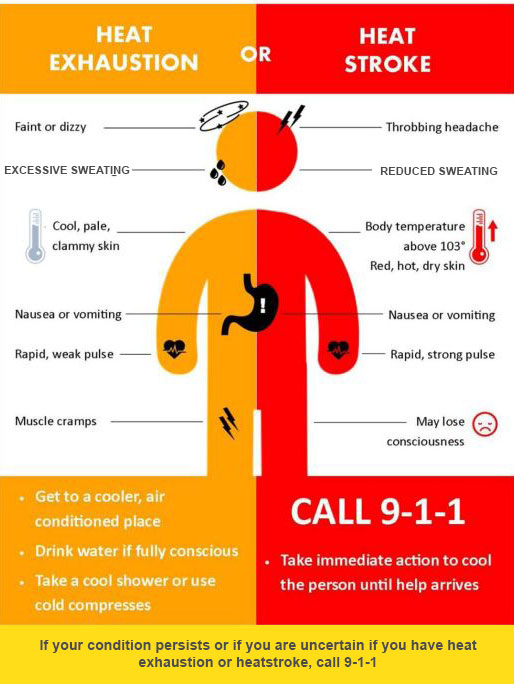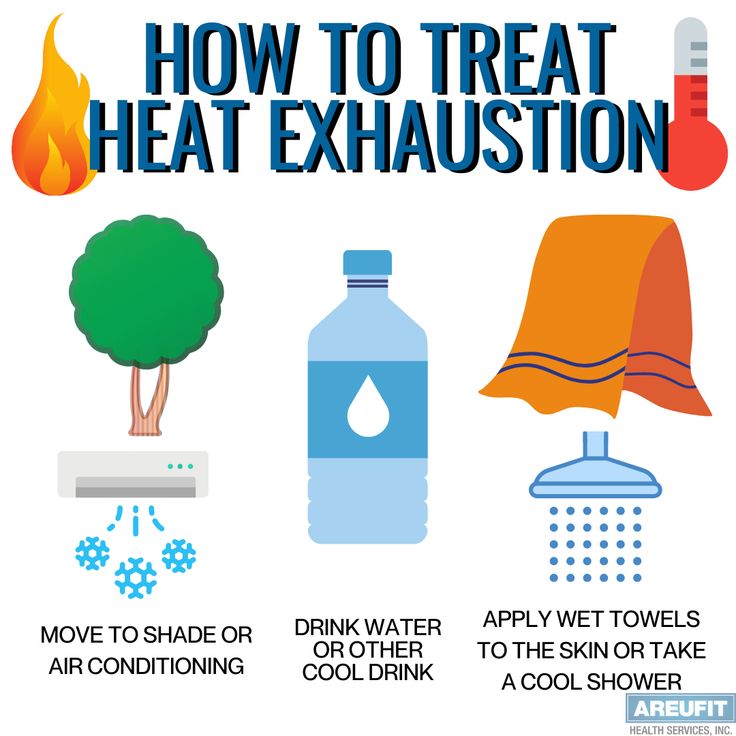
Heat exhaustion symptoms include feeling overheated; profuse sweating; cardiopalmus; hot, dry skin; nausea; fatigue; dizziness; numbness or tingling in the limbs; and severe headaches. Heat exhaustion can occur suddenly or gradually over several hours. This is caused by prolonged exposure to hot environments, such as when working on a construction site or during outdoor activities such as hiking, swimming or taking a hot bath.
Heat exhaustion can be caused by several environmental factors. It can be caused by high humidity and temperature fluctuations, excessive physical activity, lack of exercise, poor diet and smoking. It can also be caused by poor ventilation in indoor areas such as bathrooms and kitchens. However, if you experience sudden symptoms of heat exhaustion, it is important to cool down quickly.
If you think you have heat exhaustion symptoms, get help right away. If you’re outside in warm weather, look for shade or go inside, especially if it’s raining. Cold water is also important. Loosen your clothes and put on loose-fitting shirts. If you are too cold, use an ice pack or take a warm shower to relieve your headache.
If you experience heat exhaustion symptoms but are not sure if you are experiencing heat exhaustion, seek immediate medical attention. Don’t wait too long. Heat exhaustion is extremely dangerous and can cause irreparable harm to your body. This can lead to death, heart attack, or other serious illness. Your condition should be constantly monitored by a doctor.
Symptoms of heat exhaustion include: nausea, dizziness, dizziness, hot, sticky nose, headache, tight chest, profuse sweating, exhaustion, hot, red, or pink skin tingling or numbness in the limbs, tiredness, and blurred vision. However, not all symptoms may appear. Heat exhaustion is a serious health problem that can be fatal without proper medical attention. Therefore, you should consult your doctor if symptoms persist after a few minutes or last more than three days. If your symptoms continue to develop, seek emergency medical attention immediately.
One of the most common symptoms is nausea. This is often mistaken for food poisoning or dehydration, but it is not. Drink plenty of fluids to prevent this from happening. If vomiting occurs, see your doctor.

Another symptom is dizziness. It is also mistaken for dehydration. If you feel weak, dizzy, or unsteady in your legs, see your doctor as soon as possible.
Heat exhaustion symptoms are very common, so you don’t need to worry about them. But if you notice that you are feeling weak or fatigued, seek immediate medical attention because these symptoms can become serious and life-threatening.
Intense heat, especially in warm weather, can damage the skin and muscles of the body, resulting in discomfort and pain. If you are exposed to extreme heat for a long time, you run the risk of heat exhaustion. Here are some simple tips to avoid heat exhaustion: use sunscreen outside, use lower air conditioners, keep your hands and feet clean, don’t exercise excessively, drink plenty of water, and avoid strenuous exercise when you’re hot. and tired, and often sunbathe.
Serious complications can arise if you are exposed to intense heat. If you have a family history of heat exhaustion, you should always use sunscreen and cover exposed areas. with sunscreen, even if you think you are not at risk of getting burned. If you have recently been exposed to extreme temperatures, seek immediate medical attention.
When you are exposed to extreme heat, you may be advised to go outside, even if the weather is very cold. This is especially true if outdoor temperatures are expected to be low. Although extreme temperatures are not contagious, you are still susceptible to heat exhaustion.
While you may be tempted to go outside in extreme temperatures, you run a greater risk of heat exhaustion if you don’t remove water from your clothes or use an air conditioner as directed. Always use the toilet before leaving home. If you’ve never been exposed to extreme temperatures before, you should avoid exercising outdoors. Wear protective clothing that covers your skin.

